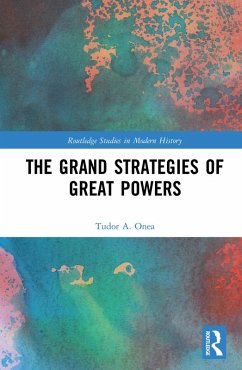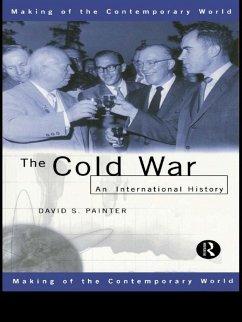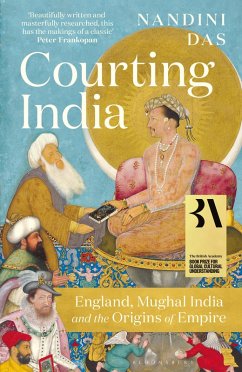
The Grand Strategies of Great Powers (eBook, PDF)
Versandkostenfrei!
Sofort per Download lieferbar
42,95 €
inkl. MwSt.
Weitere Ausgaben:

PAYBACK Punkte
21 °P sammeln!
What is grand strategy and what is it good for? What are great powers, and which states are great powers today? What are the grand strategies available to great powers? What are the conditions under which a certain strategy is suitable and when should it be rejected? What are the factors affecting the success or failure of a given grand strategy? The present volume provides answers to these questions by introducing a typology of great power grand strategies, as strategies of rising, status quo, and declining powers, as well as through historical illustrations of each type. The reader is thus e...
What is grand strategy and what is it good for? What are great powers, and which states are great powers today? What are the grand strategies available to great powers? What are the conditions under which a certain strategy is suitable and when should it be rejected? What are the factors affecting the success or failure of a given grand strategy? The present volume provides answers to these questions by introducing a typology of great power grand strategies, as strategies of rising, status quo, and declining powers, as well as through historical illustrations of each type. The reader is thus exposed to strategies such as divide and conquer, biding your time, opportunity strike, primacy, semi-detachment, concert, and appeasement through the experiences of leaders such as Bismarck, Peter the Great, Metternich, Deng Xiaoping, Neville Chamberlain, and Stalin. This analysis is then brought to bear on present developments in the grand strategies of the United States, China, and Russia. The volume should be of interest to both the academic and foreign policy-making communities, and in particular to students of international relations, diplomacy, history, and current international affairs.
Dieser Download kann aus rechtlichen Gründen nur mit Rechnungsadresse in A, B, BG, CY, CZ, D, DK, EW, E, FIN, F, GR, HR, H, IRL, I, LT, L, LR, M, NL, PL, P, R, S, SLO, SK ausgeliefert werden.













